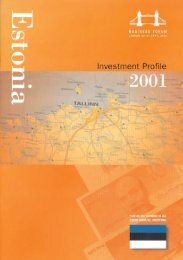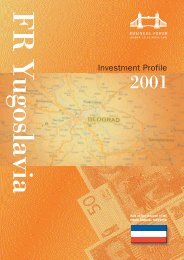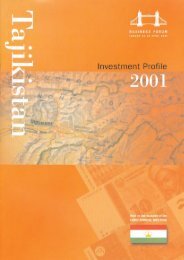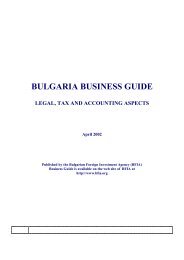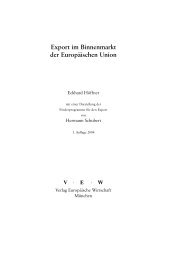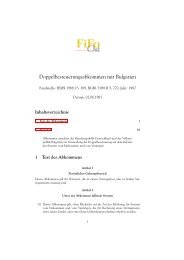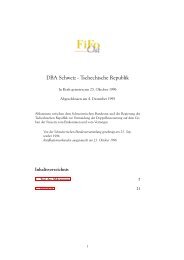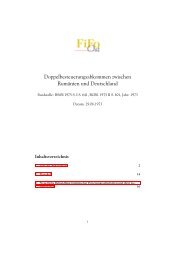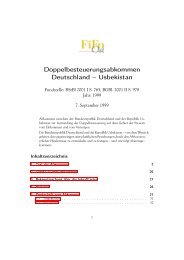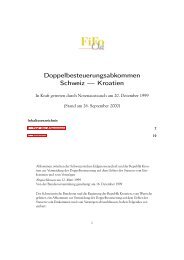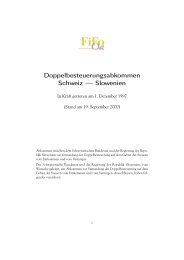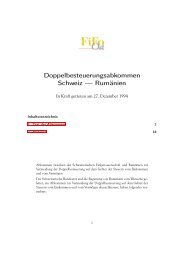EBRD activities in Ukraine - FiFo Ost
EBRD activities in Ukraine - FiFo Ost
EBRD activities in Ukraine - FiFo Ost
Create successful ePaper yourself
Turn your PDF publications into a flip-book with our unique Google optimized e-Paper software.
(Netherlands) signed the purchase agreement with the State<br />
Property Fund <strong>in</strong> October and changed the name of the<br />
shipbuilder <strong>in</strong>to Damen-Okean. The shipyard plans to return<br />
output volumes <strong>in</strong> 2001 to the level of 1991. Okean now<br />
employs 5,300 workers.<br />
Telecommunications<br />
The government started the process of restructur<strong>in</strong>g the<br />
telecommunications sector <strong>in</strong> 1993 when it separated<br />
telecommunication services (Ukrtelekom) from the ma<strong>in</strong> postal<br />
entity (Ukrposhta). With<strong>in</strong> the Ukrtelekom structure each region<br />
had its own local telephone company, and long-distance<br />
telephone services were provided by a separate company, Utel.<br />
Utel was privatised at an early stage, when AT&T (US),<br />
Deutsche Telekom (Germany) and KPN Telecom (Netherlands)<br />
all bought stakes, with Ukrtelekom reta<strong>in</strong><strong>in</strong>g 51 per cent.<br />
The privatisation of Ukrtelekom is an <strong>in</strong>tegral part of a national<br />
development programme aim<strong>in</strong>g to br<strong>in</strong>g Ukra<strong>in</strong>e up to average<br />
European telecommunication standards by 2005. Large<br />
<strong>in</strong>vestments <strong>in</strong> Ukrtelekom are required for this purpose, to be<br />
attracted through privatisation. For a long time, however, the<br />
Verkhovna Rada has opposed Ukrtelekom's privatisation for<br />
security reasons. Ukrtelekom was on the “negative” list of<br />
strategic state-owned companies that could not be privatised.<br />
An additional obstacle was the government's wish to buy back<br />
the foreign shares <strong>in</strong> Utel, <strong>in</strong> order to make Ukrtelekom more<br />
attractive to foreign <strong>in</strong>vestors. The foreign shareholders were<br />
eventually persuaded to sell back their stakes.<br />
Follow<strong>in</strong>g repeated parliamentary rejection of bills to privatise it,<br />
the law on privatisation of Ukrtelekom was adopted on 13 July<br />
2000. The government will sell at least 25 per cent of shares<br />
to an <strong>in</strong>dustry <strong>in</strong>vestor at an auction open to domestic and<br />
foreign <strong>in</strong>vestors at the end of 2001 aimed to raise at least<br />
US$ 600 million. More shares can be sold, but the state plans<br />
to keep a 50 per cent plus one share stake <strong>in</strong> Ukrtelekom. The<br />
<strong>EBRD</strong> is consider<strong>in</strong>g assistance <strong>in</strong> the pre-privatisation,<br />
<strong>in</strong>clud<strong>in</strong>g the selection of an advisor and the provision of a<br />
loan. A part of the loan is to be channelled directly <strong>in</strong>to<br />
Ukra<strong>in</strong>e's budget, whereas the largest part of the f<strong>in</strong>anc<strong>in</strong>g is<br />
to be channelled by Ukrtelekom <strong>in</strong>to implementation of several<br />
projects. The funds will also be spent on the <strong>in</strong>troduction of<br />
services to provide a computer-aided f<strong>in</strong>ancial document flow<br />
system, the Internet, ISDN, and frame relay.<br />
Mobile telecommunications<br />
Major sectors of the economy<br />
Given the obsolete condition of the telephone system and<br />
wait<strong>in</strong>g times of more than five years for a phone l<strong>in</strong>e, it is not<br />
surpris<strong>in</strong>g that mobile telecommunications companies have<br />
rapidly become operational <strong>in</strong> Ukra<strong>in</strong>e and are do<strong>in</strong>g good<br />
bus<strong>in</strong>ess. The market has grown by 300 per cent <strong>in</strong> 2000 to<br />
about 700,000 subscribers, the most dynamic year <strong>in</strong> terms of<br />
growth, and is expected to double to 1.5 million subscribers <strong>in</strong><br />
2001 as operators engage <strong>in</strong> a battle to lower bills and improve<br />
services. Penetration is still low, however, at 1.2 per cent.<br />
Seven licences have been issued and there are currently five<br />
operators <strong>in</strong> the mobile market operat<strong>in</strong>g six networks. Two<br />
companies, Astelyt and Telesystems Ukra<strong>in</strong>y, have licences but<br />
do not yet provide mobile communications services.<br />
Ukra<strong>in</strong>ian Mobile Communications (UMC) was set up as a jo<strong>in</strong>t<br />
venture between Ukrtelekom (51 per cent), KPN (Netherlands,<br />
16.33 per cent), TeleDanmark (Denmark, 16.33 per cent) and<br />
Deutsche Telekom (Germany, 16.33 per cent). UMC has so far<br />
<strong>in</strong>vested around US$ 300 million <strong>in</strong> the development of its<br />
NMT-450 and GSM-900 networks. The NMT-450 network covers<br />
more than 170 cities and the GSM-900 covers around 40<br />
cities. UMC has <strong>in</strong>vested US$ 50 million <strong>in</strong> the GSM-900 <strong>in</strong><br />
2000 and will <strong>in</strong>vest the same amount <strong>in</strong> 2001 to expand the<br />
network and offer new services, such as WAP services to prepaid<br />
customers. UMC will also start provid<strong>in</strong>g GSM-1800<br />
services <strong>in</strong> 2001, for which it received a licence <strong>in</strong> autumn<br />
2000. UMC had about 450,000 subscribers at the end of<br />
2000, a market share of about 52 per cent .<br />
Kyivstar is owned by two Ukra<strong>in</strong>ian companies (Storm – 31 per<br />
cent, and Omega – 20 per cent), <strong>in</strong>vestment fund Sputnik (US,<br />
14 per cent), and Telenor (Norway, 35 per cent). In January<br />
2001 Telenor announced it would buy an additional 6.8 per<br />
cent stake to <strong>in</strong>crease its total to 41.89, to be f<strong>in</strong>alised <strong>in</strong><br />
April 2001. Kyivstar has already <strong>in</strong>vested US$ 240 million <strong>in</strong><br />
launch<strong>in</strong>g its GSM-900 network <strong>in</strong> Ukra<strong>in</strong>e and is currently<br />
<strong>in</strong>vest<strong>in</strong>g heavily <strong>in</strong>to development of the network to cover most<br />
of Ukra<strong>in</strong>e's regional centres. The company expects to <strong>in</strong>vest<br />
US$ 150 million to expand its network and launch new<br />
products before the end of 2001. In March Kyivstar launched<br />
a GSM-1800 network <strong>in</strong> Kyiv. Kyivstar had about 300,000<br />
subscribers at the end of 2000. (See case study overleaf.)<br />
Ukra<strong>in</strong>e Investment Profile 23



